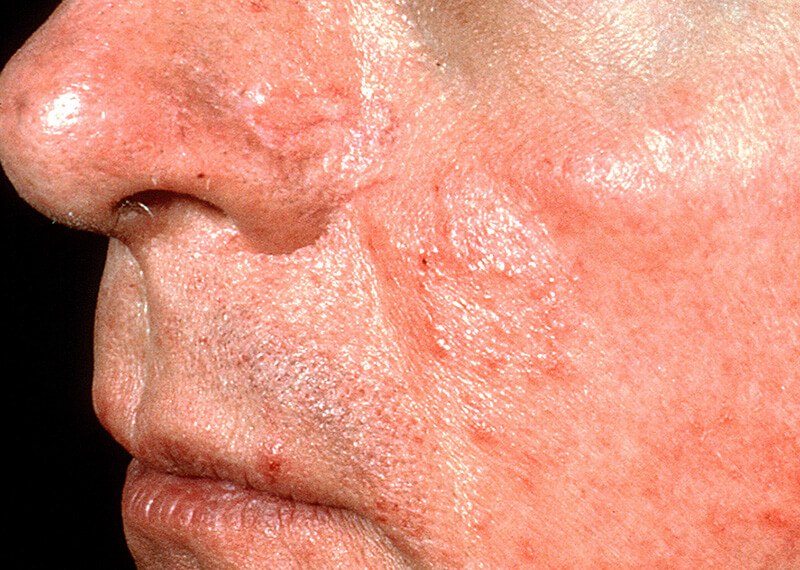 The NRS Research Grants Program has awarded funding for a new study, in addition to continued support for three ongoing studies, in its mission to help increase knowledge and understanding of the causes and other key aspects of rosacea that may lead to improvement in its management, prevention or potential cure.
The NRS Research Grants Program has awarded funding for a new study, in addition to continued support for three ongoing studies, in its mission to help increase knowledge and understanding of the causes and other key aspects of rosacea that may lead to improvement in its management, prevention or potential cure.
Joseph Mehrabi, a dermatology medical student, and Dr. Kristen Kelly, vice-chair of dermatology at the University of California-Irvine, were awarded $23,315 to study the effectiveness of identifying the size and density of the vascular lesions of rosacea using two types of tomography, an imaging modality, to improve laser settings in individuals with facial redness and visible blood vessels.
Meanwhile in ongoing studies, Dr. Anna Di Nardo, associate professor of dermatology at the University of California-San Diego, and colleagues are investigating the effects of antimicrobial peptides on mast cells and the mechanism by which nerve cells activate mast cells to induce rosacea signs and symptoms. In addition, Dr. Benjamin Kaffenberger, assistant professor of dermatology at Ohio State University, is developing a computer program for a rosacea scoring system that will identify and count rosacea lesions and measure redness to provide reliably reproducible scores for physicians and patients. Dr. Raja Sivamani, associate professor of clinical dermatology at the University of California-Davis, is studying how the skin and eyelid oils, known as lipids, are altered in individuals with rosacea symptoms of the skin and eye, and whether any deficiencies lead to the bumps and pimples of rosacea as well as the eye dryness and irritation of ocular rosacea.
“Because of studies supported by the NRS over the past 20 years, researchers have created a growing body of scientific information that not only identifies vital new areas for research, but has unearthed greater understanding of its underlying disease process,” said Dr. Julie Harper, clinical associate professor of dermatology at the University of Alabama-Birmingham and a member of the NRS medical advisory board. “While its ultimate cause is unknown, scientific investigations have pointed the way toward more effective therapies to help alleviate rosacea’s physical effects, as well as ease its psychological, emotional and social burdens.”
Since its founding in 1999, the research grants program has awarded more than $1.6 million to researchers to support 71 studies to date, and has played a leading role in improving the lives of people with rosacea by funding important studies that have led directly toward advances in its treatment, management and potential prevention. The program is funded by donations from thousands of individuals who wish to improve the lives of those affected by rosacea. Join the fight against rosacea. Donate to this important program today.